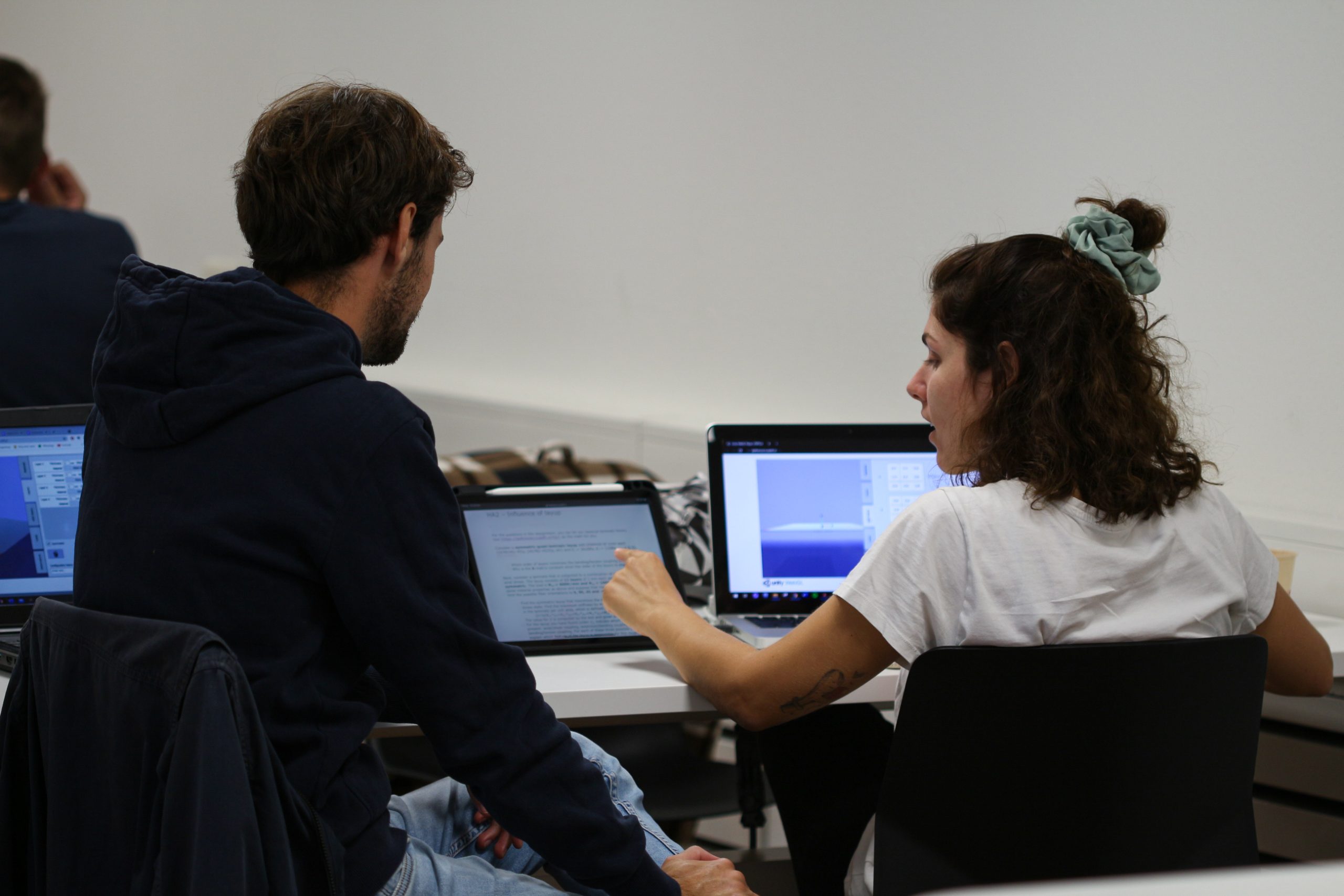Even if the Cabinet scraps the working at home advice, many TU Delft employees do not want or need to work on campus full-time. TU Delft is working on rules for hybrid work.
The Executive Board sees TU Delft as a ‘campus university’ where staff and students meet and inspire each other in ‘planned and unplanned’ encounters. (Photo: Justyna Botor)
From ‘working at home unless it is not possible’ to ‘work from home when possible, come to the office if necessary’. From this week onwards, in the week in which the one-and-a-half metre society was scrapped, there will be little more than a slight lifting of restrictions for TU Delft staff. This does not apply to people who have to be on campus for teaching, research or other site dependent work. Everyone else still needs to consult their supervisor if they want to come to the office.
What will TU Delft do if the Cabinet scraps the working at home recommendation altogether and what will be the guidelines for staff for working at home? That TU Delft largely wants to do away with working at home became clear at the beginning of July in the TU Delft Talkshow. There, the Executive Board said that it saw TU Delft as a ‘campus university’ where staff and students meet and inspire each other in ‘planned and unplanned’ encounters. They also saw the advantages of working at home and this gave rise to hybrid work.
Ratio campus/home
This reflects the preferences of many staff members. A survey of just under 2,000 staff members at the beginning of summer showed that 95% only want to return to campus for half their time. For convenience, the CAO (collective labour agreement) for universities upholds the working at home allowance proportion 60/40: three days a week at the office and two at home for full-time work.
‘Employees may need to adjust’
The proportion that TU Delft will uphold will be known after a consultation between the Executive Board and the Works Council. This subject has been on the agenda since the end of October. In the meantime, the Human Resources Department (HR) is encouraging supervisors to discuss the issue with their staff. HR has produced ‘dialogue starters’ such as ‘On which days/parts of days is it possible to work at your place of residence?’ and ‘What activities can you do at your place of residence?’. HR also emphasises that employees may need to adjust to working at the office again. Should this be the case, an ‘adjustment plan’ may need to be made.
Mobility allowance is back
The ‘Hybrid working policy’, published on the intranet on 7 September, says that hybrid work will be a ‘learning process’. Pilots will be carried out with different types of work and meeting spaces, and quiet and hybrid working spaces to see what works and what does not work.
Meanwhile, on 24 September, TU Delft opened up the mobility allowance in IKA (the individual choice option in the labour conditions). This is much later than normal because of corona and working at home. Staff members who again come to campus regularly can claim part of their commuting costs from the tax authority.
Apart from this, employees will also receive a working at home and internet allowance along with their salaries. The allowances that they will receive should the working at home recommendation be lifted is not yet known. The trades unions must first have their say in the Local Consultation Body.
Do you have a question or comment about this article?
s.m.bonger@tudelft.nl


Comments are closed.